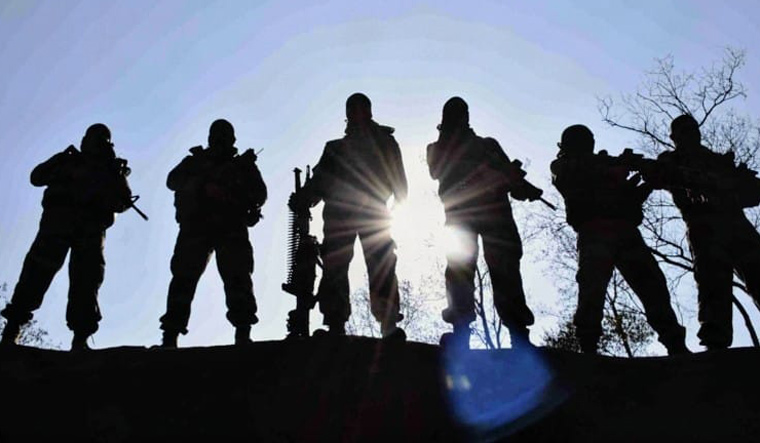Having served in the Indian Army for over three decades and commanded 8 Jammu and Kashmir Light Infantry (Siachen) in the area close to Arunachal Pradesh's Bomdila in the early 1990s, I was amazed and disappointed to read about the recent incident of the local police there beating up two Army soldiers.
It is not only the ‘why’ part of this issue that amazed me, but more importantly the 'what after’ piece that made one feel slighted and disgusted.
The area right from the Tenga Valley to Bomdila and onward to Sela Pass before you reach Tawang is but a reflection of simplicity and peace. The relationship between the uniformed fraternity of the Army and police over the years has been very cordial. Then the question is why did the incident take place?
The reasons could well be due to strained relations between the Army and the police in recent years or because of immense pressure on the latter since there have been frequent VIP movements across Bomdila, during the Tawang festival or it may just have been an exhibition of ill-disciplined behaviour.
Whatever be the reason, what was really irksome is the display of absolute high-handedness on the part of the local police to even touch the two soldiers of the 2 Arunachal Pradesh Scouts Battalion, their own kith and kin, recruited from their own state or from areas close to their homes. This can be interpreted to be an expression of the police's frustration, coupled with their confidence to get away with the support of their mentors, superiors and their lobbyists at the highest levels of the ‘powers of the Centre’.
The Bomdila incident can be considered to be a breakdown of military-civilian relations on two counts. First, because of the nature of the incident itself and second because of the limited response from the military hierarchy against the strong support aired by the civilian bureaucracy and the polity. Why are these two elements bent upon denigrating the very fabric an officer grows up with, which has been clearly articulated in the second line of the Chetwodean credo—‘The welfare, safety and comfort of the men you command come next’?
Colonel Firdosh P. Dubash, commanding officer of 2 Arunachal Scouts Battalion, as he deemed fit, filed an FIR with the Police Station, West Kameng District, on November 3 and further displayed his angst through his outburst, which has been widely circulated on social media.
One wonders what stopped the Army from supporting the officer and shudders to think whether the outburst was contained because of the visit of the defence minister and minister of state for home affairs to the incident site? Did such a visit encourage the president of the Indian Civil and Administrative Services (Central) Association to write to the secretary, ministry of defence, to take action against the commanding officer as per their presumptuous conclusions?
It is in this context that the 'what after' part has to be thought of and it starts with a basic question:
Why did the defence minister and minister of state for home act as preliminary investigators? Was the visit necessary or was it with the intent of supporting the police force, acknowledging that the 'government was with you’? Or was it meant for the senior military hierarchy with the message that ‘best for you is to stay away and let us handle it’?
If the latter is the intention and one hopes to be proved wrong on it, and if the military brass indict the young commanding officer who has taken a stand—and I am not suggesting for the right or wrong reasons—then I see a major problem within the Army itself.
While there are always loopholes to take action against the commanding officer, with the recent social media policy having come into effect, yet the ‘not to speak and support’ syndrome will result in simmering tension, which could lead to tarnishing the image of one of the most important instruments of power of a nation-state in the sum game of power and influence and that will be extremely detrimental to the uniform we once donned.
Rajiv Williams retired as a brigadier from the Indian Army and works in the corporate sector. He is associated with several think tanks.
The opinions expressed in this article are those of the author's and do not purport to reflect the opinions or views of THE WEEK



